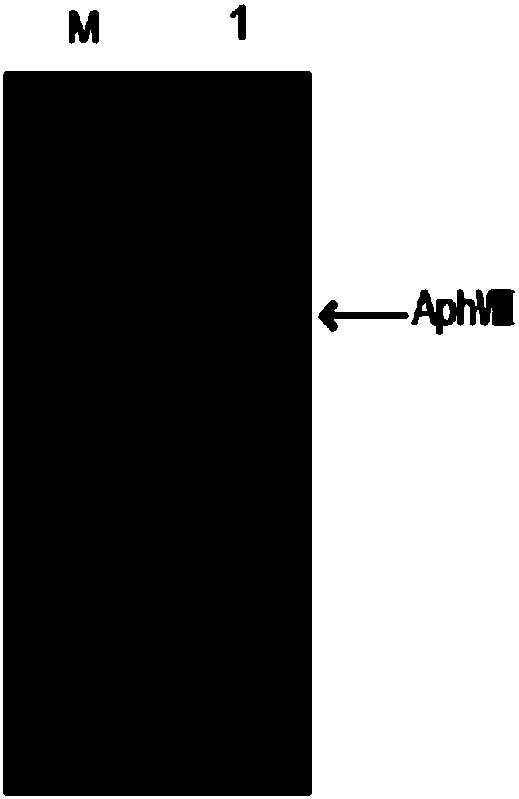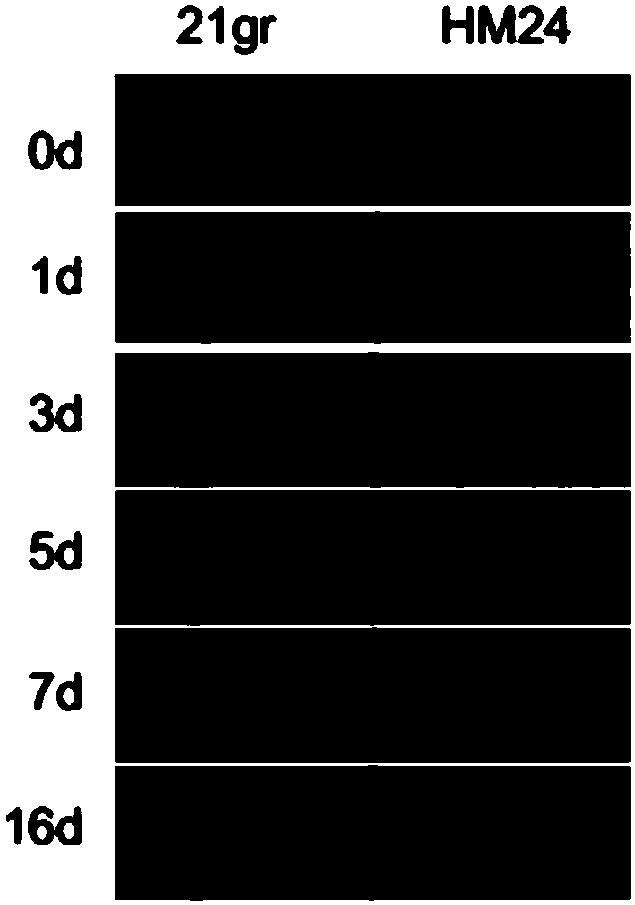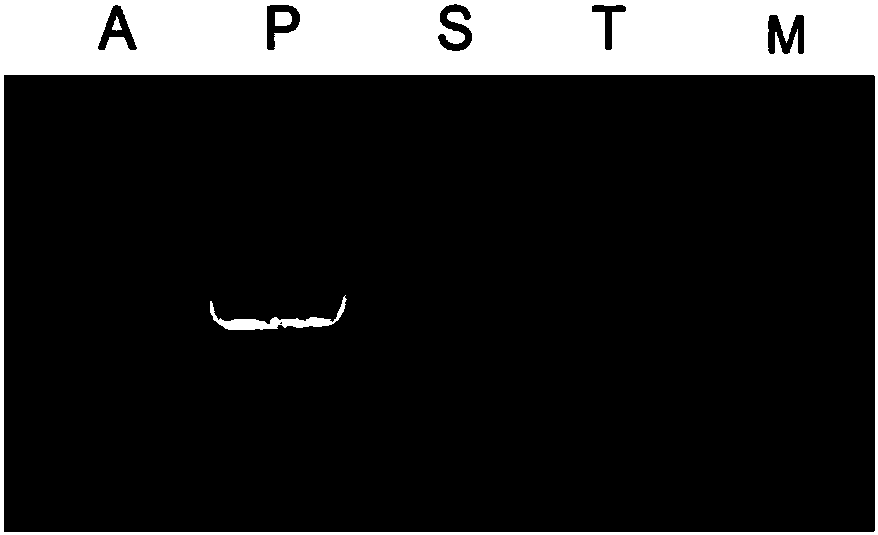Application of Chlamydomonas reinhardtii Cre01.g046237.t1.1 gene in regulating cadmium tolerance of Chlamydomonas reinhardtii
A cre01.g046237.t1.1, Rhine clothing technology, applied in the application, genetic engineering, plant genetic improvement and other directions, can solve the problems of high cost and complicated operation, achieve simple method, mature technical system, significant resistance to heavy metal cadmium Effect
- Summary
- Abstract
- Description
- Claims
- Application Information
AI Technical Summary
Problems solved by technology
Method used
Image
Examples
Embodiment 1
[0035] Example 1: Screening of Chlamydomonas reinhardtii heavy metal cadmium-resistant mutant algal beads
[0036] (1) Preparation for inserting the target fragment
[0037]First extract the PJMG-aphⅧ plasmid (Zhangfeng Hu, Yinwen Liang, Wei He, Junmin Pan * , Cilia Disassembly with Two Distinct Phases of Regulation, Cell Reports, 2015, 10(11): 1803-1810; containing aphⅧ fragment, the sequence is shown in SEQ ID NO: 3), and then digested with EcoRI and cutsmartBuffer, and digested The product is electrophoresed on agarose gel, and the target fragment is cut and recovered, such as figure 1 As shown, M is BM5000 DNA Marker, 1 is the enzyme digestion product, and the band indicated by the arrow is the target fragment to be recovered. Gel recovery mainly uses Sangon’s Gel Recovery Kit (article number: B518191-0100). According to the weight of the gel strip, add Buffer B2 3-6 times the weight of the gel strip, and use 20 μL of Elution Buffer to elute the DNA fragments. Around 10...
Embodiment 2
[0044] Example 2: Identification of Mutant Genes of Chlamydomonas reinhardtii Heavy Metal Cadmium-Resistant Mutant Algal Strains
[0045] (1) Extraction of mutant genomic DNA
[0046] a: Put the heavy metal cadmium-resistant mutant HM24 screened above into the liquid medium with a pipette tip. After the cells grow to the logarithmic phase, collect the cells into a 1.5mL EP tube, centrifuge at 14,000rpm at room temperature for 1min, and discard. The precipitate was frozen with liquid nitrogen and stored at -80°C for future use.
[0047] b: Take out the cells collected above with liquid nitrogen, add 700 μl of preheated CTAB lysate, put them in a water bath at 65°C for about one hour, and invert and mix them several times to fully lyse the cells.
[0048] c: After the cells are fully lysed, add 700 μl of a mixed solution of phenol: chloroform: isoamyl alcohol = 25:24:1 to the EP tube, shake the EP tube, mix well, and centrifuge at 14,000 rpm for 10 min.
[0049] d: After centr...
PUM
 Login to View More
Login to View More Abstract
Description
Claims
Application Information
 Login to View More
Login to View More - R&D
- Intellectual Property
- Life Sciences
- Materials
- Tech Scout
- Unparalleled Data Quality
- Higher Quality Content
- 60% Fewer Hallucinations
Browse by: Latest US Patents, China's latest patents, Technical Efficacy Thesaurus, Application Domain, Technology Topic, Popular Technical Reports.
© 2025 PatSnap. All rights reserved.Legal|Privacy policy|Modern Slavery Act Transparency Statement|Sitemap|About US| Contact US: help@patsnap.com



